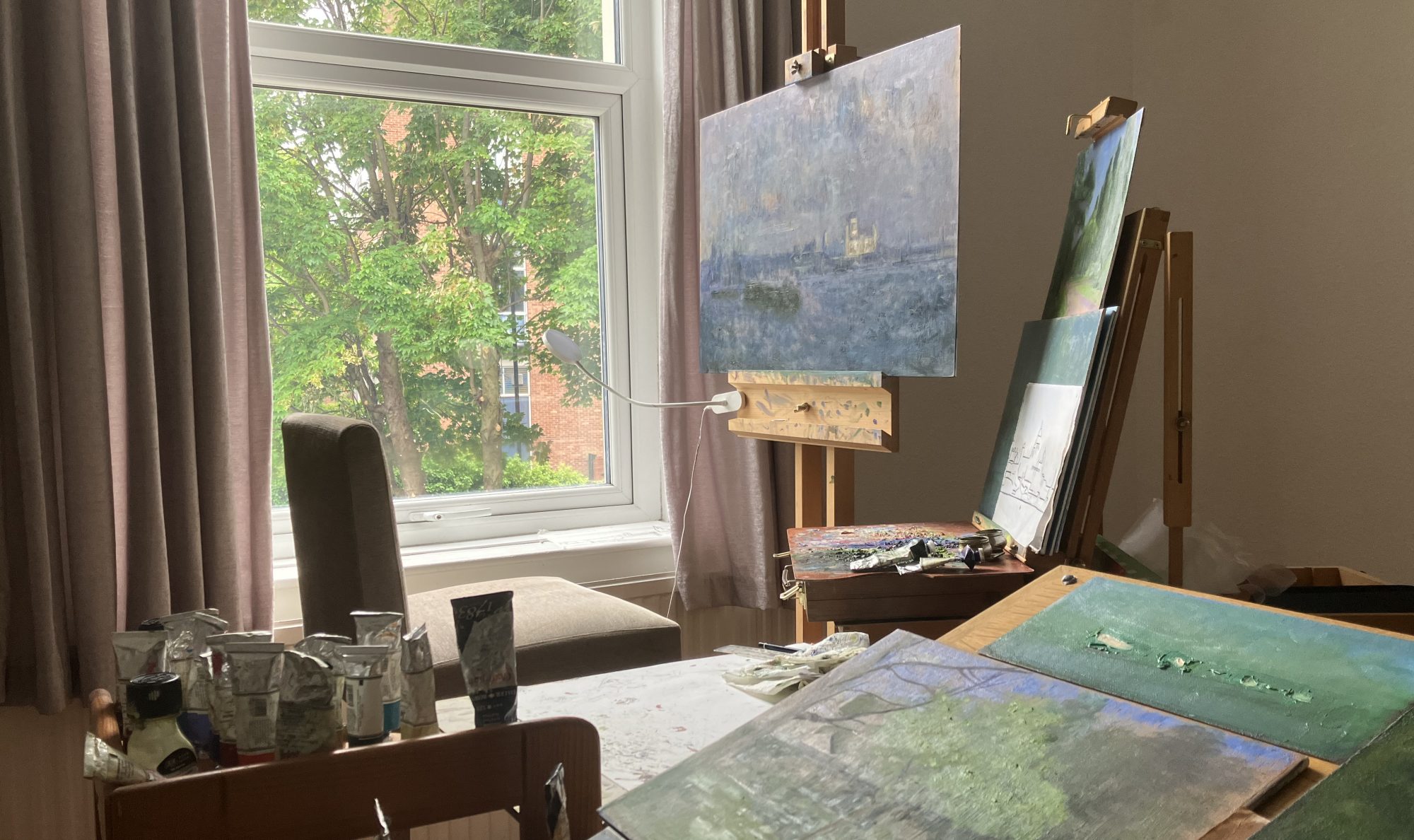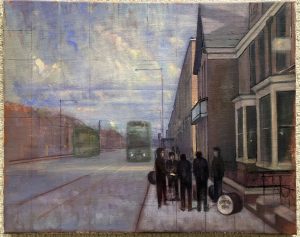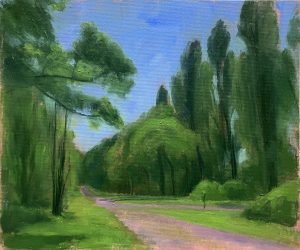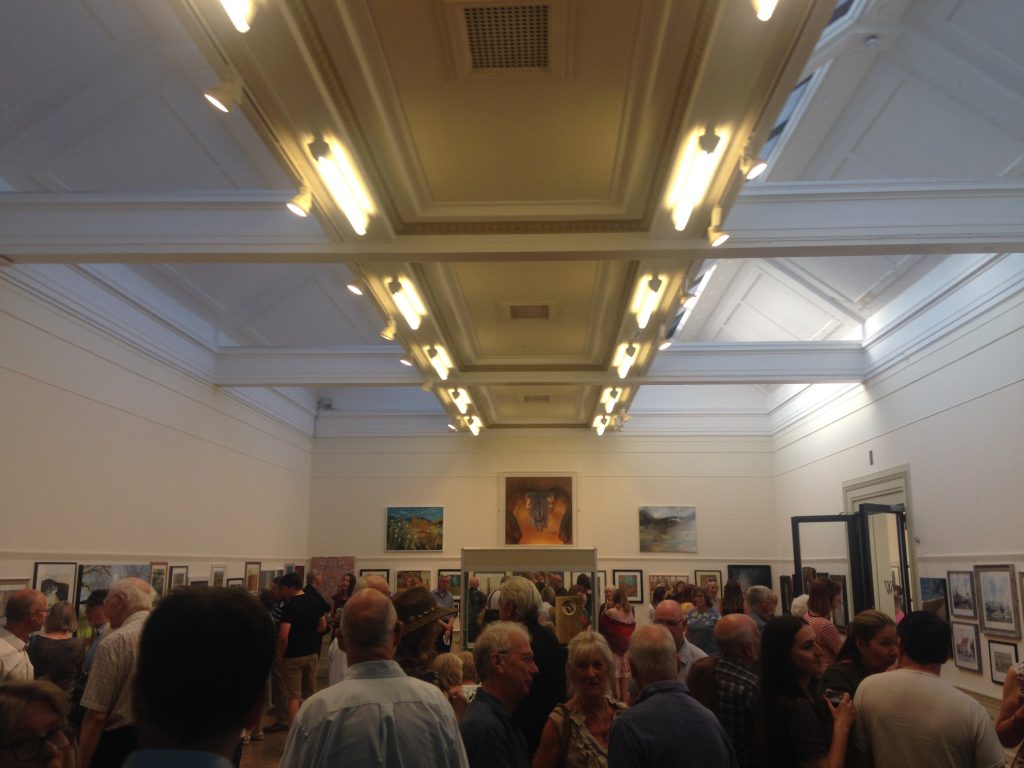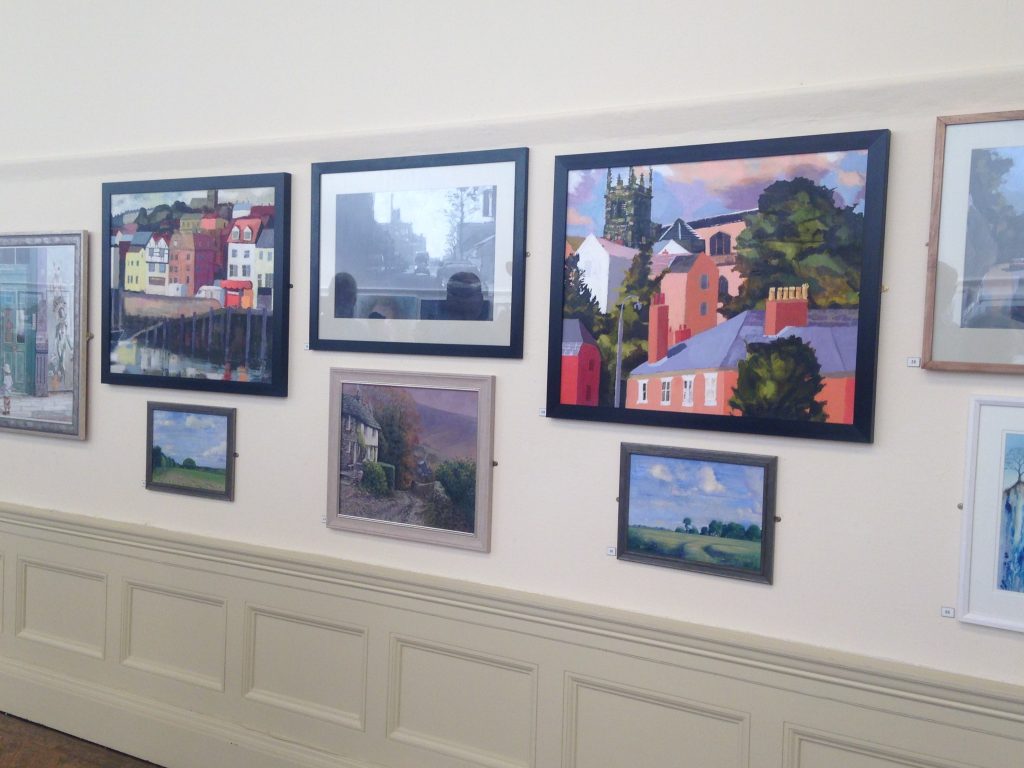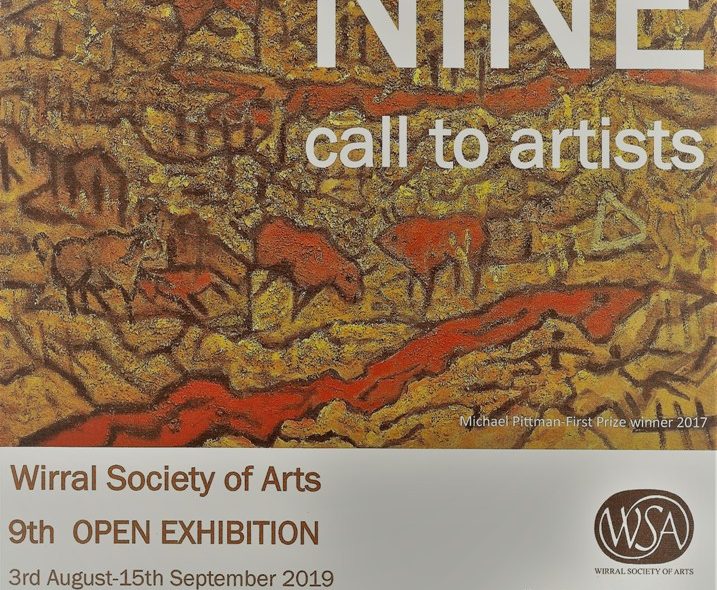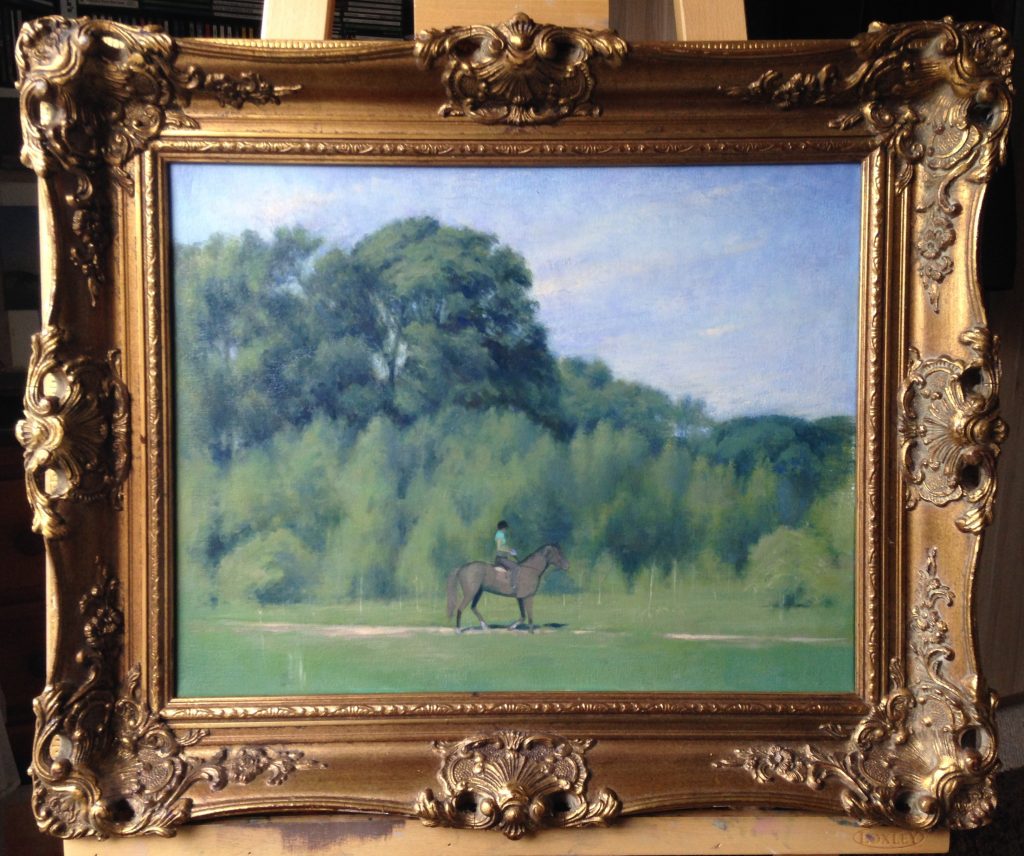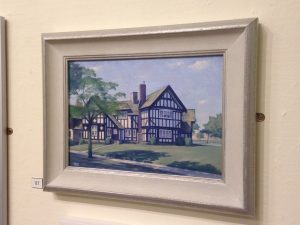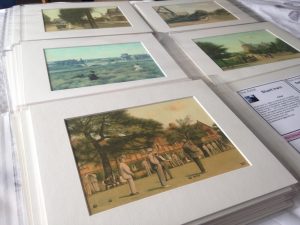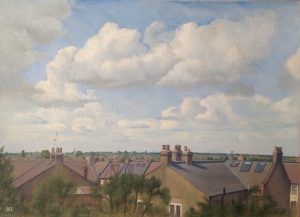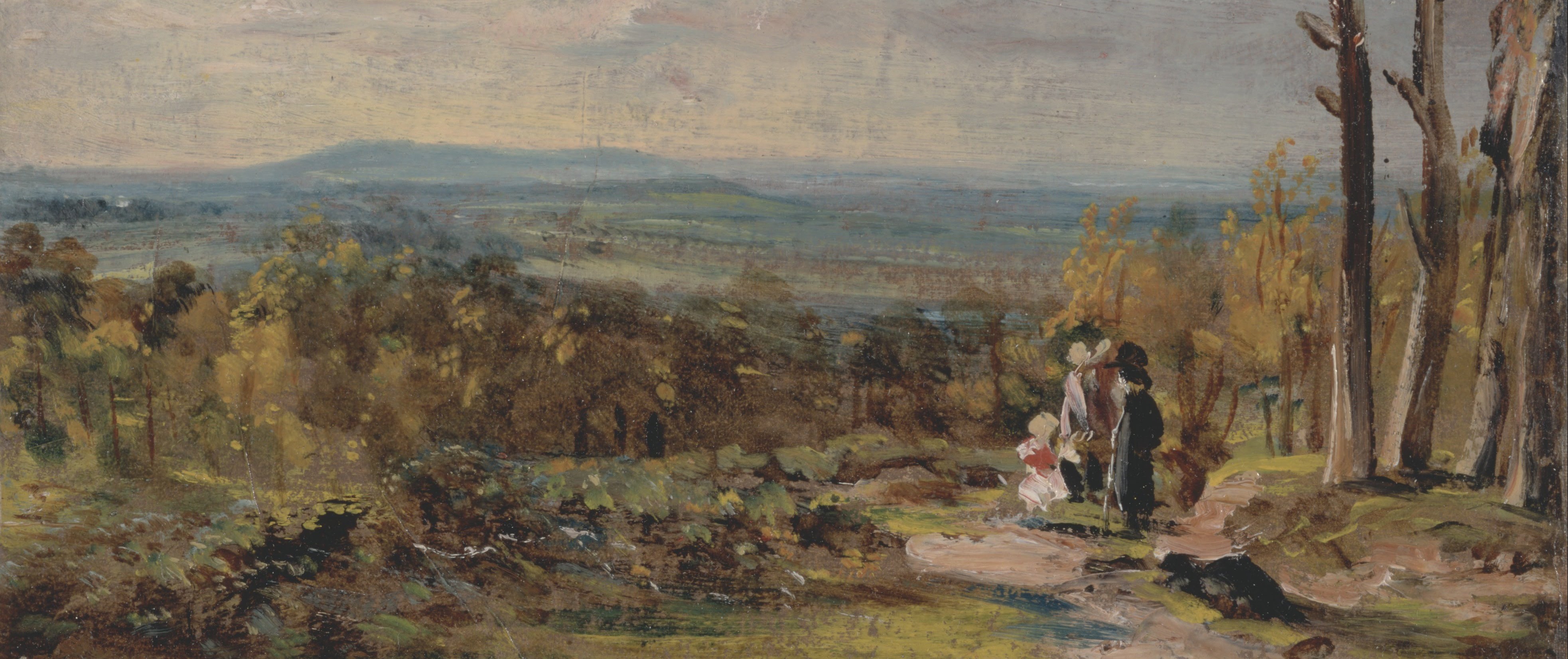
Having spent many years pouring over John Contable’s work, in particular his Hampstead era landscapes and oil sketches – some of which I consider to be his finest works – last weekend I took the opportunity to explore his old stomping ground in North London.
Some background…
Despite the fact that Constable will forever be associated with Suffolk, that area of the county now labelled ‘Constable Country’, the artist spent a large proportion of his professional years based in London.
Like most professional artists of his time, Constable needed a base in London to negotiate with prospective buyers. After his marriage in 1816, he established a home at 76 Charlotte Street, Bloomsbury (now demolished), and then every summer from 1819 to 1826 rented a house at Hampstead for his family. During these periods he would let out part of the Charlotte Street property and would later remark that he was ‘three miles’ door to door – can have a message in an hour – and can always get away from idle callers – and above all see nature and unite town and country life’.
Hampstead Village was at that time part of Middlesex, outside the city. Constable originally arranged these summer migrations to improve the health of his wife and children, but he soon found plenty of subjects to paint. The family moved there more permanently in 1827. This first blog post deals with the area the west of the village centre, and West Heath.
Lower Terrace Number 2 Lower Terrace is the house the family stayed at in the summers of 1821 and 1822. The road is close to the centre of the village, and overlooks West Heath.
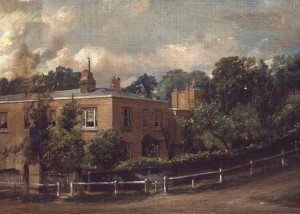
‘Lower Terrace, Hampstead’ c. 1821 -2. Board of Trustees of the Victoria & Albert Museum.
I remember this painting appeared in one of the first Constable books I owned, ‘The Essential Constable’, which included a broad mix of works not always featured it more serious study’s of the artist – some of which had dubious attribution as I recall – but it also included some of the paintings that I would grow to love.
Note that the left hand edge of the painting is unfinished, and has been folded back at some point.
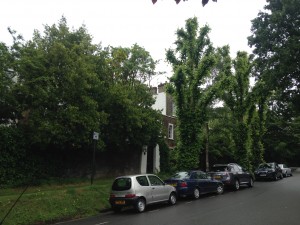
Two views of Lower Terrace as it appears today.
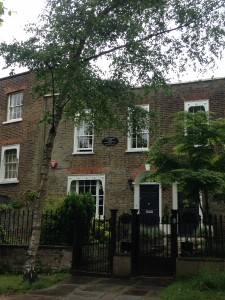
Judges Walk After moving out to Hampstead, Constable renewed his practice of oil sketching and many of his famous ‘Sky studies’ were done at this time. Behind Lower Terrace is ‘Judges Walk’, then known as ‘Prospect Walk’. From here views towards Harrow could be obtained and Constable painted many scenes looking west from this elevated position. The two intense and vibrent evening scenes below are thought to have both been painted on 31st October 1821. Both feature figures enjoying the view, the second of which may even be the Constable family themselves. The artist wrote to his friend John Fisher on 3rd November:
‘The last day of Octr was lovely so much so that I could not paint for looking – my wife was walking with me all the middle of the day on the beautiful heath. I made two evening effects’.
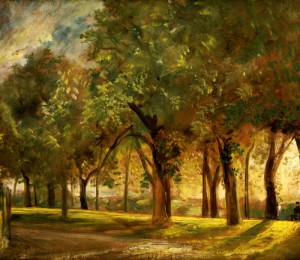
Judge’s Walk, Hampstead, Oil on Paper Laid on Canvas, 1821.
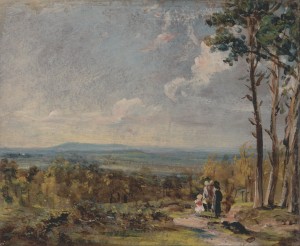
Hampstead Heath, Looking towards Harrow 1821. Oil on paper laid on Canvas. Yale Center for British Art, Paul Mellon Collection.
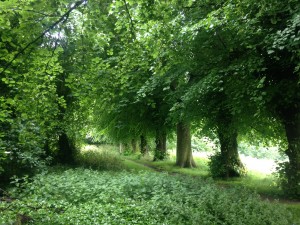
Branch Hill Pond Judges Walk looks out over Branch Hill Pond, which featured in many of Constable’s standard Hampstead compositions as well as oil sketches.
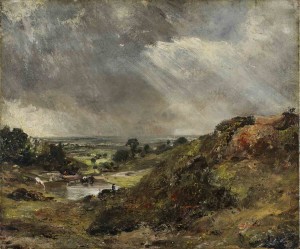
Branch Hill Pond, Hampstead, 1819. Board of Trustees of the Victoria & Albert Museum.
This is his first known dated oil of a Hampstead subject, painted on canvas at the end of October 1819. Constable would go on to repeat variations of this view until 1836 (‘Hampstead Heath with a Rainbow’ in the Tate collection).
This painting includes some brilliant impasto work dispatched with the palette knife.
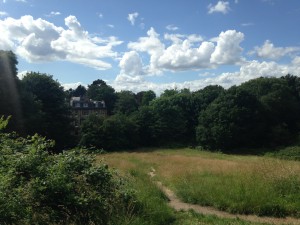
Difficult to obtain the exact view, and probably taken from a slightly different angle to the right, but this shows the hollow where Branch Hill Pond once sat, looking west towards Harrow. The house to the left through the trees, The Chestnuts, on Branch Hill was once lived in by the American singer and actor Paul Robeson during the late 1920s.
The Grove With a flat roof resembling the quarter deck of a man-of-war, the house called ‘The Grove’ was occupied in the early nineteenth century by a former lieutenant of the navy, Fountain North. North had had the house altered, and is said to have fired cannon on special occasions.

‘A Romantic House at Hampstead’ (The Grove), 1832. National Gallery Berlin.
Constable made several views of this property from different angles. The painting here shows the house as seen from Lower Terrace, almost across the road from number 2. The house is little altered and the same view can be obtained today. It is sometimes referred to as ‘Admiral’s House’ having been renamed that in 1917, in the mistaken belief that Admiral Mathew Barton had lived there. The painting was known as the ‘Romantic House’ amongst Constable’s children.
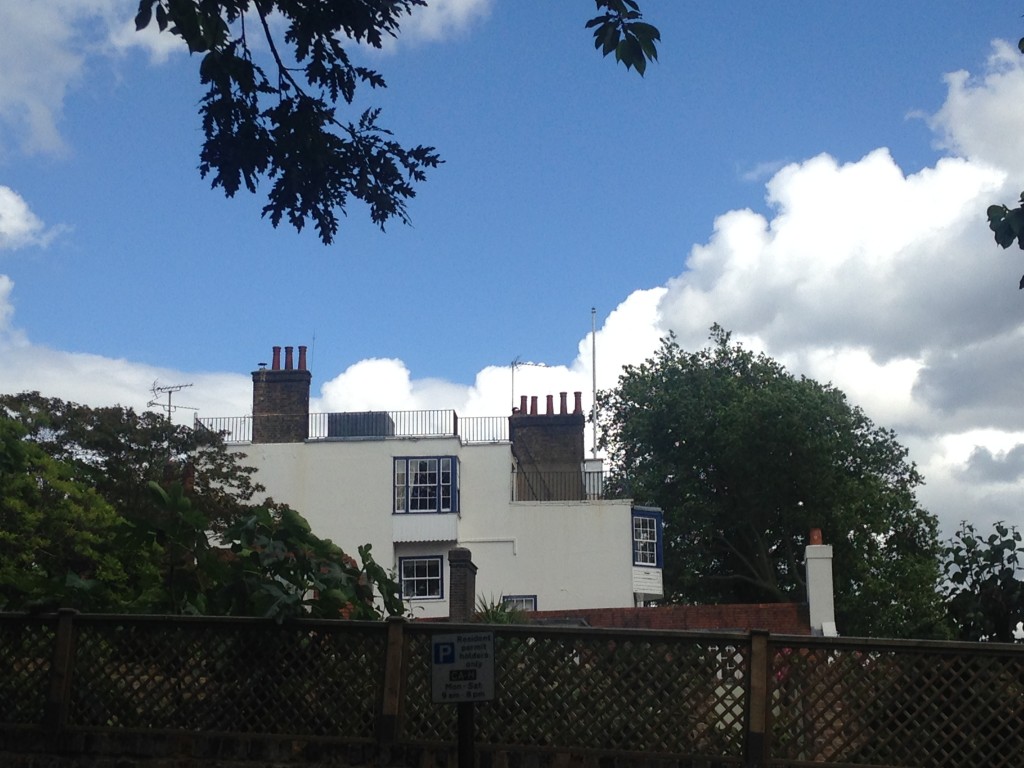
‘The Grove’, as seen from Lower Terrace today.
